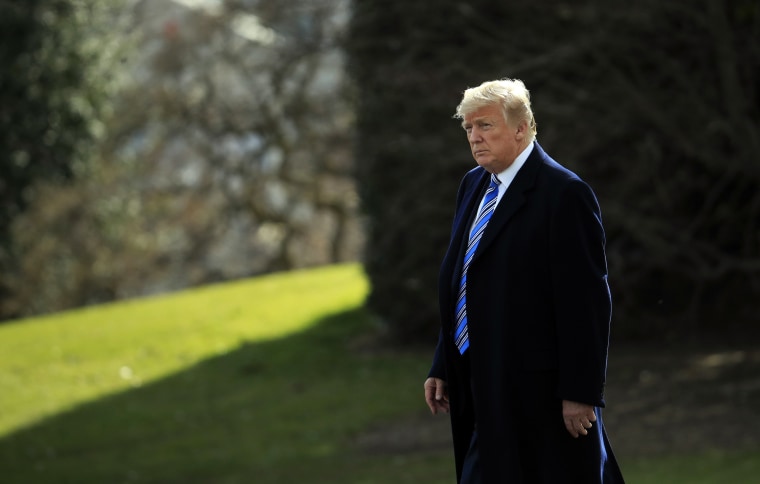Tricia Newbold, a security specialist in the White House who's worked under Democratic and Republican presidents, has become an important whistleblower, alerting Congress to the fact that Donald Trump's team has overruled dozens of security clearance denials. As we learned yesterday, in 25 instances, U.S. officials balked at security clearances for individuals, only to have political appointees ignore the findings.
According to the House Oversight Committee's Republican staff, some of the 25 instances included people who were initially denied security clearances for "very serious reasons," but who nevertheless ended up with access to sensitive information.
As Rachel noted on the show last night, this story is far from over, and we'll likely see some congressional subpoenas as House Democrats seek additional information about the White House subverting the whole system so that people who would otherwise be rejected for clearances end up with access to secrets anyway.
As the story advances, there was something in a Washington Post analysis that stood out for me: this is hardly the first time Team Trump has been accused of carelessness when it comes to protecting the nation's secrets. In addition to the security-clearance issue:
* [The president] blurted out a highly classified piece of information to Russian leaders that risked jeopardizing a key foreign policy alliance.* He has engaged in multiple highly secretive face-to-face meetings with Russian President Vladimir Putin where even top national security officials were in the dark.* He kept Michael Flynn on as national security adviser for weeks despite warnings that Flynn could be susceptible to blackmail because he had lied to the White House.* He turned a dining room at Mar-a-Lago into an open-air situation room, strategizing about a North Korean missile launch with Japanese Prime Minister Shinzo Abe.* There have been reports that Trump has disregarded advice from security experts about his cellphone use and even that he has pressed forward with an unsecured phone we know the Russians and Chinese can listen in on.* Multiple top White House aides have reportedly used private emai to discuss White House matters, both potentially flouting records laws and posing unnecessary security threats.
I seem to recall a time when Republicans were deeply concerned about issues like these. I believe that era was known as "2016."
Circling back to our earlier coverage, shortly before the last presidential election, then-House Speaker Paul Ryan (R-Wis.) called for intelligence agencies to deny Hillary Clinton intelligence briefings for the rest of the campaign season because of her email server protocols. The message was straightforward: “It’s simple: Individuals who are ‘extremely careless’ [with] classified info should be denied further access to it.”
The day before Ryan’s declaration, 14 Republican senators introduced legislation to revoke Clinton’s security clearance and demand that anyone in the executive branch who shows “extreme carelessness” in their handling of classified information be denied access to that information.
The same day, then-RNC Chairman Reince Priebus said those who’ve mishandled classified information “have had their security clearances revoked, lost their jobs, faced fines, and even been sent to prison.” Soon after, then-Rep. Darrell Issa (R-Calif.) asked, “What do I say to the marines in my district when Hillary Clinton handles classified information in a careless way yet has no ramifications?”
Rep. Michael McCaul (R-Texas) argued that even the possibility of exposing sensitive intelligence to foreign adversaries is “treason.”
And then, of course, there was Donald J. Trump, who had all kinds of things to say about this subject during his campaign, when he insisted that anyone who’s mishandled classified information should obviously be disqualified from positions of authority.
And yet, the GOP seems far less concerned now.
